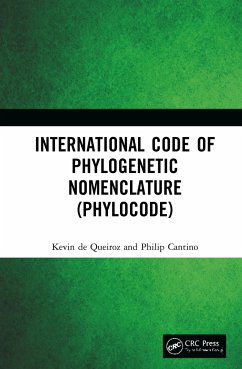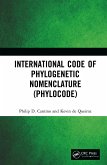The PhyloCode is a set of principles, rules, and recommendations governing phylogenetic nomenclature, a system for naming taxa by explicit reference to phylogeny. In contrast, the current botanical, zoological, and bacteriological codes define taxa by reference to taxonomic ranks (e.g., family, genus) and types. This code will govern the names of clades; species names will still be governed by traditional codes. The PhyloCode is designed so that it can be used concurrently with the rank-based codes. It is not meant to replace existing names but to provide an alternative system for governing the application of both existing and newly proposed names. Key Features Provides clear regulations for naming clades Based on expressly phylogenetic principles Complements existing codes of nomenclature Eliminates the reliance on taxonomic ranks in favor of phylogenetic relationships Related Titles: Rieppel, O. Phylogenetic Systematics: Haeckel to Hennig (ISBN 978-1-4987-5488-0) de Queiroz, K., Cantino, P. D. and Gauthier, J. A. Phylonyms: A Companion to the PhyloCode¿ (ISBN 978-1-138-33293-5).
Hinweis: Dieser Artikel kann nur an eine deutsche Lieferadresse ausgeliefert werden.
Hinweis: Dieser Artikel kann nur an eine deutsche Lieferadresse ausgeliefert werden.








